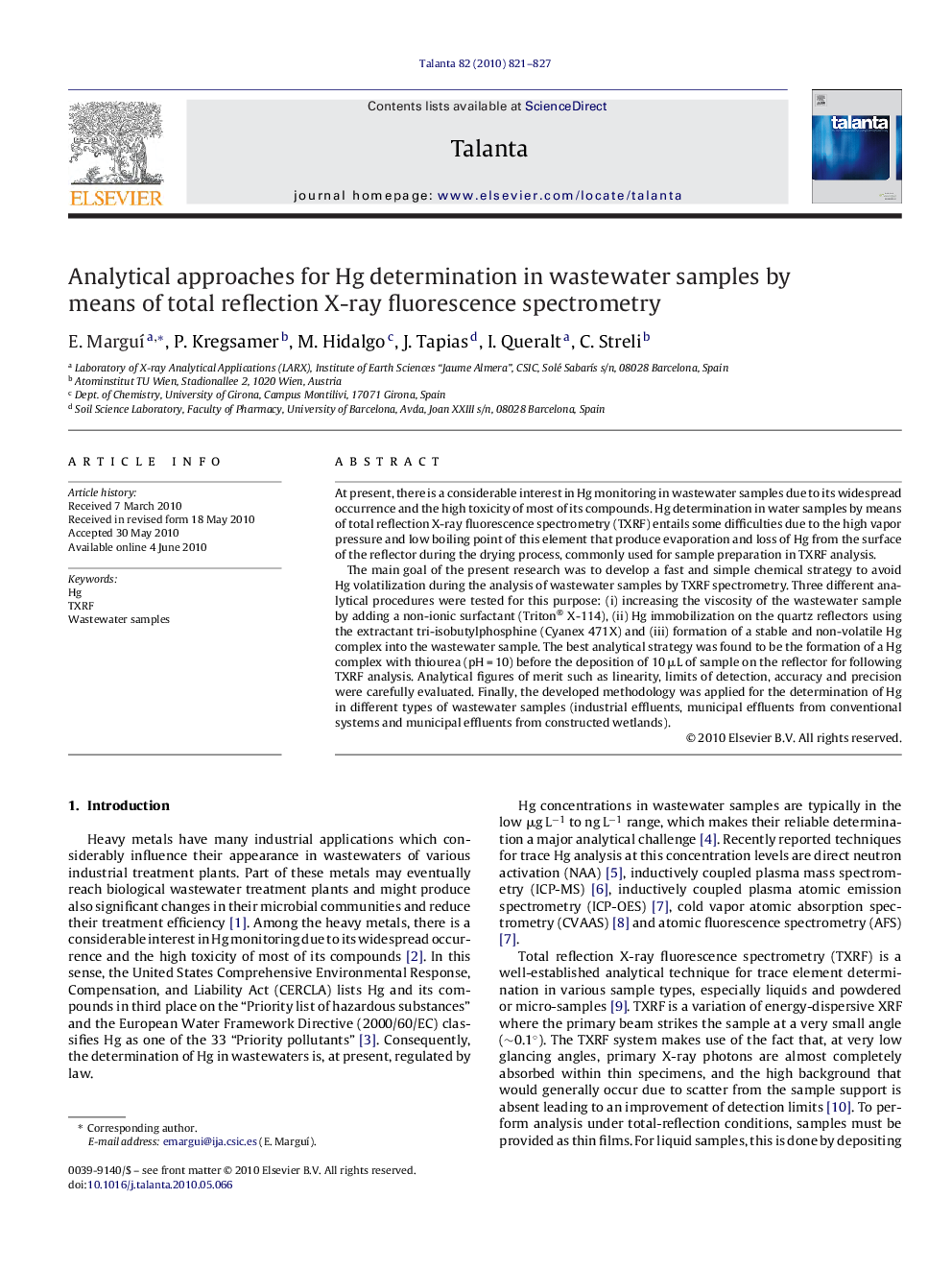| Article ID | Journal | Published Year | Pages | File Type |
|---|---|---|---|---|
| 1244726 | Talanta | 2010 | 7 Pages |
At present, there is a considerable interest in Hg monitoring in wastewater samples due to its widespread occurrence and the high toxicity of most of its compounds. Hg determination in water samples by means of total reflection X-ray fluorescence spectrometry (TXRF) entails some difficulties due to the high vapor pressure and low boiling point of this element that produce evaporation and loss of Hg from the surface of the reflector during the drying process, commonly used for sample preparation in TXRF analysis.The main goal of the present research was to develop a fast and simple chemical strategy to avoid Hg volatilization during the analysis of wastewater samples by TXRF spectrometry. Three different analytical procedures were tested for this purpose: (i) increasing the viscosity of the wastewater sample by adding a non-ionic surfactant (Triton® X-114), (ii) Hg immobilization on the quartz reflectors using the extractant tri-isobutylphosphine (Cyanex 471X) and (iii) formation of a stable and non-volatile Hg complex into the wastewater sample. The best analytical strategy was found to be the formation of a Hg complex with thiourea (pH = 10) before the deposition of 10 μL of sample on the reflector for following TXRF analysis. Analytical figures of merit such as linearity, limits of detection, accuracy and precision were carefully evaluated. Finally, the developed methodology was applied for the determination of Hg in different types of wastewater samples (industrial effluents, municipal effluents from conventional systems and municipal effluents from constructed wetlands).
